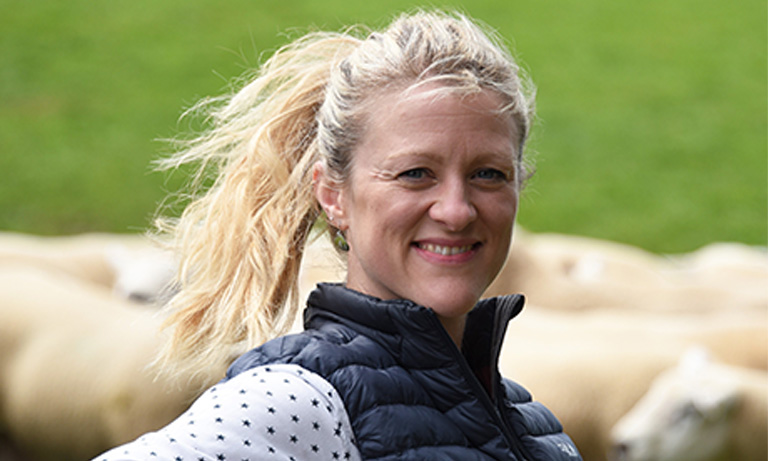The veterinary voice for animal welfare: reflecting on BVA’s updated Animal Welfare Strategy
11 Jul 2025
18 Nov 2025 | Gwen Rees
BVA Junior Vice President Gwen Rees reflects on a career that’s helping shape the future of veterinary medicine and responsible antimicrobial use

I never set out to become a veterinary academic. In fact, I was probably one of the least likely candidates during vet school - just ask my lecturers or fellow students. Research held almost zero appeal for me back then, despite the best efforts of many. And pharmacology? I absorbed just enough to get out into the real world and start treating animals. So how did I end up specialising in antimicrobial stewardship, spending most of my time helping vets use medicines responsibly?
I’ll start at the beginning.
After graduating, I jumped straight into a busy mixed practice in rural West Wales. Those first few years were a whirlwind of learning the “art and science” of being a practitioner. I was living the job, minute by minute. Eventually, I took a leap and headed to New Zealand for a season, working mostly as a dairy vet on the South Island. The farmers there were both strikingly similar to, and intriguingly different from, the ones I’d worked with in Wales. And it was during that time that something began to shift.
I started noticing a pattern. I’d explain to a farmer or client exactly what needed to be done to treat an animal. I’d leave thinking, “Sorted!” only to discover later that they hadn’t followed my advice. At first, I was frustrated. “Why won’t they just listen?” But slowly, I realised I was missing something fundamental. It wasn’t defiance; it was complexity. I was just one voice in a much bigger decision-making process.
That realisation stuck with me. When I returned to the UK, I moved into academia to explore what had become a bit of an obsession: why do farmers do, or not do, what we advise them to?
I wrote my own PhD proposal and, thankfully, found funding under the brilliant mentorship of Professor Kristen Reyher and her AMR Force research group at Bristol Veterinary School. For the next three years, I immersed myself in studying how UK dairy farmers use prescription veterinary medicines. I focused on the medicines stored on farms for later use which, let’s face it, is most of them. I wanted to understand the decision-making process: how were these medicines being administered, and how was their use being recorded?
That research changed me. It reshaped how I see the world and how I see farmers. It taught me clinical humility and a new empathy for the juggling act that farmers perform every day. I realised the vet isn’t always the most influential person in the room (shock, horror!). If we want to influence behaviour and improve outcomes, we need to understand the full picture: the pressures, beliefs, habits, and identities that shape a farmer’s choices.
When it comes to responsible antimicrobial use, farmers are just like the rest of us. They’re risk-averse. They develop their own internal logic for treatment decisions. They want to feel proactive when faced with a sick animal, it’s part of their identity as good farmers. They also need practical, easy-to-implement solutions. Understanding that, and working with it, is key.
That PhD sparked a fascination with medicine use and stewardship, which eventually led to the creation of the award-winning Veterinary Prescribing Champions Network in Wales. This network won the Antibiotic Guardian Award 2023 for Prescribing and Stewardship and has been presented as a model for change internationally. I’ve been lucky to work with an incredible team, and today we have over 70 farm vets actively engaged in improving stewardship. Much of our success comes from understanding behaviour change and supporting vets to work collaboratively with their farmers.
And it’s working. We’re seeing real change - on farms, in policy, and across the country. It’s proof that research doesn’t have to be lab-based. It can be applied, alive, and capable of driving meaningful change in the real world.
By following my curiosity - how people use medicines - I’ve built a career in research and policy that’s genuinely fulfilling. And while I don’t get called out at 2am to deal with a prolapsed uterus anymore (I do miss that side of clinical life… sometimes), I’ve found a new kind of purpose. One that’s helping shape the future of veterinary medicine, and antimicrobial stewardship, one decision at a time.
Get tailored news in your inbox and online, plus access to our journals, resources and support services, join the BVA.
Join Us Today